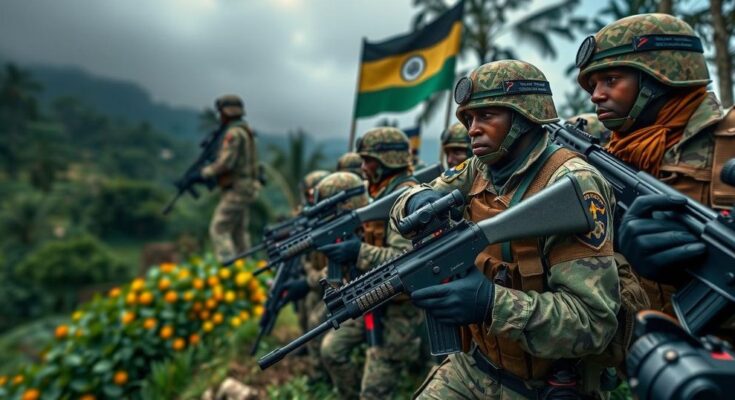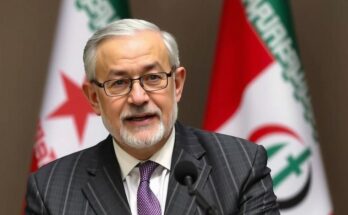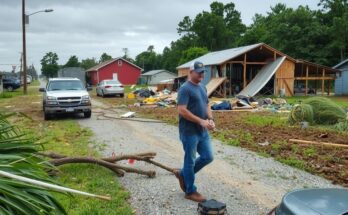The Congolese army declared it has recaptured Kalembe from M23 rebels, who deny losing control. The town has been a flashpoint in ongoing violence, stemming from a renewed insurgency by the Tutsi-led group since 2022, amid accusations of Rwandan support. Military reinforcements were dispatched, and the situation remains volatile, perpetuating a significant humanitarian crisis with millions displaced.
On Tuesday, the Democratic Republic of Congo’s army announced that it had successfully recaptured the eastern town of Kalembe from the M23 rebels, who had seized it the previous day. Kalembe, located in the Walikale territory of North Kivu, fell under the control of the M23 on Sunday morning following an offensive against both Congolese armed forces and allied pro-government militias. The M23, which is predominantly Tutsi-led, has been involved in an ongoing insurgency in eastern Congo since 2022. Accusations have surfaced against Rwanda, claiming its support of the M23 through military assistance; however, these allegations have been categorically denied by the Rwandan government. Sylvain Ekenge, spokesperson for the Congolese army, asserted that the town was retaken on Monday, while Corneille Nangaa, the leader of the Congo River Alliance which encompasses the M23, countered by stating that the rebels still maintained control. Ekenge reported that clashes continue between the M23 and pro-government forces in regions outside army jurisdiction. In response to the escalating violence, military reinforcements were dispatched via helicopter on Monday morning. The ongoing hostilities contravene a ceasefire brokered by Angola in August, as noted by an official statement from the Angolan government. Kabaki Alimasi, a local official from Walikale, affirmed the army’s recapture of Kalembe but indicated that fighting persists in the vicinity, stating, “The M23 are not far. We can hear gunfire; the population that fled has not yet returned.” The persistent insurgency in eastern Congo, particularly in the mineral-rich region of North Kivu, has significantly exacerbated the humanitarian crisis, with approximately 2.6 million individuals displaced as of the end of September, according to United Nations reports.
The ongoing conflict in the Democratic Republic of Congo’s eastern provinces has its roots in political, ethnic, and economic complexities. The M23 rebellion, which reignited in 2022, draws its origins from grievances related to citizenship, political representation, and economic marginalization. The humanitarian implications of this conflict have been severe, resulting in widespread displacement and suffering among the local population. With historical ties to Rwanda, the M23’s insurgent activities have led to accusations of external military support, complicating the regional dynamics further. The Congolese government and international observers have made various diplomatic efforts to establish a lasting peace, underscored by a ceasefire agreement mediated by Angola, yet violations remain a prevalent issue.
In summary, the situation in Kalembe epitomizes the larger conflict facing the Democratic Republic of Congo, where control over territory continues to shift amidst claims and counterclaims by opposing factions. Despite the army’s assertions of regained control, ongoing violence and disputes regarding territorial authority highlight the fragility of peace in the region. Furthermore, this conflict continues to worsen the humanitarian crisis affecting millions of displaced individuals in North Kivu, underscoring the urgent need for concerted international intervention and a sustainable resolution.
Original Source: www.voanews.com




